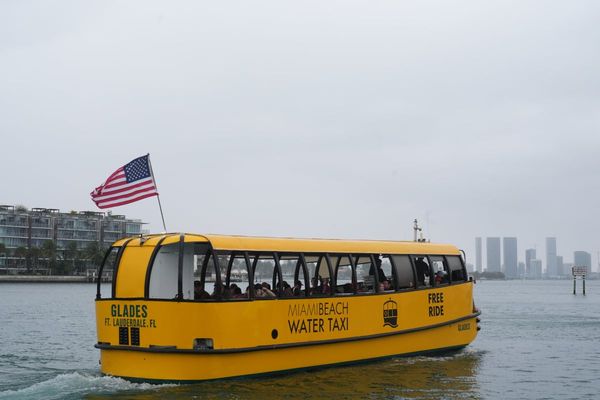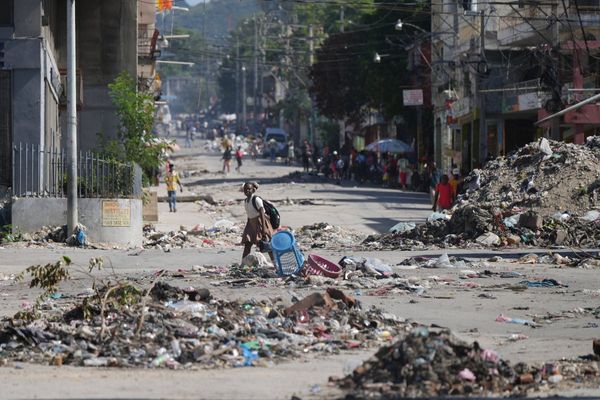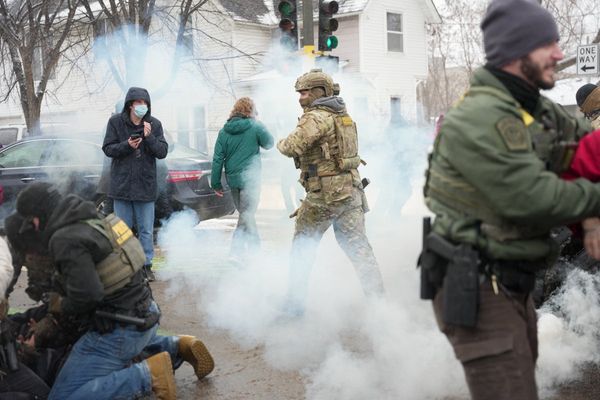Multiple scientists at Queensland's state-run forensics laboratory have detailed their alarm and confusion over a DNA testing procedure, which was introduced after major concerns were raised about the previous process.
Scientist Ingrid Moeller told a commission of inquiry this week, that the new testing procedure was "disturbing" and "nonsensical".
The hearings have been hearing evidence from scientists at Queensland Health Forensic and Scientific Services about a "toxic" work culture and issues with the testing of DNA samples relating to major crimes like rapes and murders.
Counsel Assisting the Commissioner questioned several of them about the process, which was introduced to replace the contentious testing threshold, which initially sparked the royal commission-style inquiry.
From 2018, samples that fell below a certain threshold were classified "DIFP", or DNA Insufficient for Processing.
But additional testing has since successfully detected DNA in some samples, with reworks requested by the Queensland Police Service (the lab's major client) having a 66 per cent success rate for samples related to sex crimes.
When the Queensland government announced the public inquiry following a cabinet meeting in June –six months after serious allegations about forensic testing were detailed in the Australian newspaper's podcast Shandee's Story – the Health Minister Yvette D'Ath said the DIFP threshold would immediately be removed and every sample would be sent for DNA processing.
But instead of reverting to the process in place before 2018, a new process was instituted – one that was baffling to several scientists at the lab, according to their evidence.
Critical step omitted from new process: expert
Independent forensics expert Kirsty Wright said the new protocol left out a critical step called micro-concentration — a process resembling a reverse dilution, where the fluid is distilled so there's more DNA in the sample.
"If you didn't concentrate the sample, it means that you would have less DNA going on to be profiled, which means you have a much less chance of being able to obtain a DNA profile," Dr Wright explained.
The samples then go on to be amplified.
"Think of amplifying as photocopying," Dr Wright said.
"The amount of DNA we get at a crime scene – it's not enough to be able to look at under the DNA instruments. We need to be able to photocopy the DNA, so we have billions and billions and billions of copies of the crime scene DNA, which is more than enough for us to be able to then look at that DNA, to be able to obtain a DNA profile and be able to read a DNA profile."
Senior scientist not consulted
In a statement published by the commission, senior scientist Kylie Rika said she wasn't consulted about the change of process before it was announced.
"The process after 6 June, 2022 means that scientists were unable to process samples to the best of their judgement because the sample might require concentration prior to amplification."
Ms Rika said she raised her concerns at a management team meeting a few days later and was told by managing scientist Cathie Allen that a government minister chose the option at a meeting and the decision was therefore final.
"I have formed the impression that Cathie [Allen] and Justin [Howes] may want to avoid the use of the Microcon as it is costly in terms of labour/time due to it being a manual process as opposed to an automated process," Ms Rika's statement read.
"I have wondered whether this decision has been made in an attempt to support the rationale behind the Options Paper that was presented to the QPS by Justin and Cathie in 2018."
That options paper resulted in the change to the DIFP threshold, and it came under criticism from internationally-renowned forensics expert Bruce Budowle in his evidence to the Commission last month.
'Didn't make scientific sense to me'
Giving evidence last Monday, reporting scientist Alicia Quartermain said she questioned the new procedure when it was announced in June, saying she thought it wasn't the best way to process samples and asked Ms Allen why the decision had been made.
"I remember her saying that they provided all the options to Premier and Cabinet and that was the option they went with, and that was why I questioned that, because that didn't make any scientific sense to me," she said.
"In my opinion, it could be the difference between obtaining a usable, interpretable DNA profile and obtaining a DNA profile that can't be used."
Another reporting scientist, Ingrid Moeller, gave evidence that she didn't understand the June change.
"I was quite confused by this," she said.
"It's not something I would have done with these samples. It didn't make sense to me scientifically, and so I discussed it with other colleagues and similarly they were quite confused by it.
"It was quite disturbing actually. It was nonsensical, in my mind."
The commissioner heard Dr Moeller had raised concerns with a higher manager whether, if it was a ministerial decision, had the minister been properly briefed.
Reporting scientist Rhys Parry said he believed the process to be problematic, and significantly lowered the chances of obtaining an "optimal" DNA profile.
Emma-Jayne Caunt, another reporting scientist, told the commission she also sent an email questioning the new process, believing the pre-2018 process was better.
Undue restrictions placed on scientists
On August 19 this year, the process was changed again.
The concentration process for samples would now be concentrated down to a certain volume – not a full concentration – and may undergo only one amplification process, so that some of the sample could be preserved.
In her statement, Ms Rika said she wasn't consulted on this change either, and she and Ms Caunt made a list of potential issues –writing that a blanket approach was not appropriate, and compromised quality to obtain shorter turnaround times.
"The process places undue restrictions on the scientist to get the best result as permission is required from the QPS to perform a second amp. The QPS may not necessarily be in the position to determine whether a second amp might make a profile interpretable."
In his evidence, Rhys Parry speculated the August change was potentially because the QPS had lost faith in the laboratory.
"I kind of understood at the time that QPS might have been losing confidence in our ability to obtain DNA at low levels because of everything that had gone on, and maybe they were hedging their bets so that they could get it analysed elsewhere if they wanted to," he said.
"But from a scientific perspective, it wasn't the optimal decision because microconning that extra little bit doubles the DNA… which is more likely to give you a good profile."
'Profound issue' for the administration of justice
It was revealed in a September hearing of the commission that the Queensland Police Service has requested a pause on testing the samples, over concerns the new approach could exhaust the DNA.
Forensic scientist Kirsty Wright, who is following the inquiry very closely, said the commission was returning to the issue again and again.
"Both of those processes would have meant it was a lot less likely to be able to obtain a DNA profile," she said.
"It really is an interesting question to ask. Why?"
The inquiry will hold public hearings for several more weeks, and Ms Allen and Mr Howes have not appeared before the commission to give evidence.
Commissioner Walter Sofronoff KC has already delivered an explosive interim report, finding that Queensland Health Forensic and Scientific Services had issued "untrue" or "misleading" statements regarding DIFP samples.
He called this a "profound issue" for the administration of criminal justice, the integrity of police investigations and decisions made by victims of crime.







